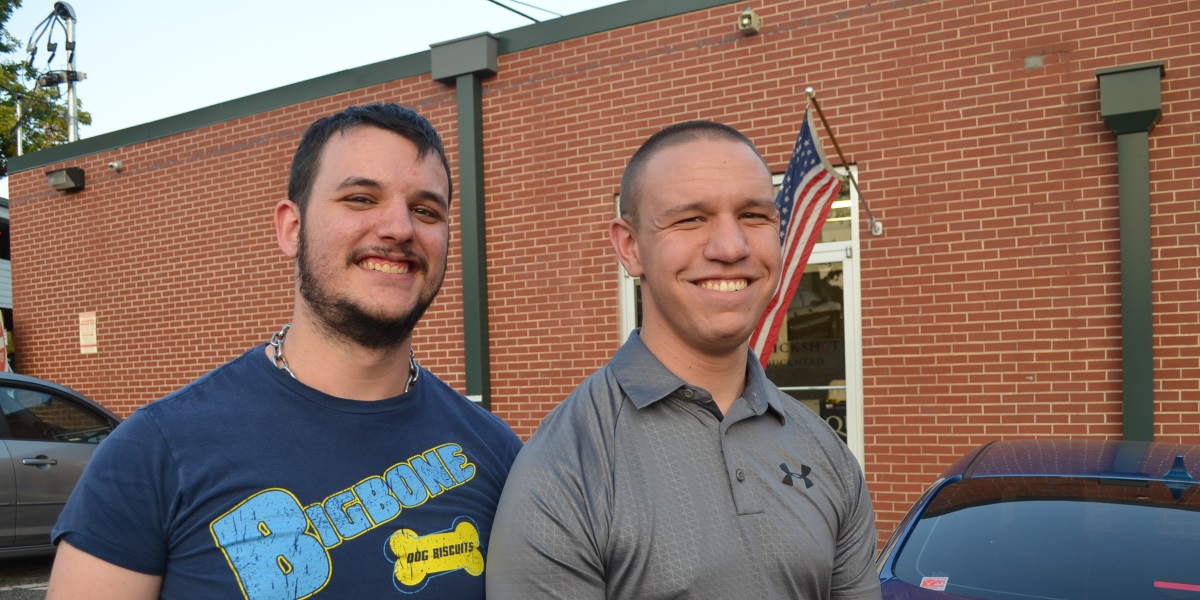Chris Novy is thinking about getting his concealed carry license.
“I am new to a lot of the more free, Second Amendment culture,” Novy said. “If I see someone walking with a gun down the street, in California, that’s not a thing. In Georgia, it is.”
He said figuring out what his rights are is important. Novy was one of about a dozen people to show up to the Atlanta chapter of an LGBT gun group, Pink Pistols. They were holding their first meeting since the Pulse nightclub shooting in Orlando earlier this month.
Dylan West is an experienced shooter who helped organize the meet-up.
“When we look at the Facebook group, it looks like we’ve added about 150 new members in the last week and a half or so, so it has nearly doubled in size,” West said.
He said for many it’s about self-defense.
“There is no shortage of attacks against the LGBT community in history. We look decades back there have been arson attacks at bars down to one-on-one attacks constantly,” West said.
There is a kind of natural fit between an interest in the Second Amendment and an almost libertarian streak for some lesbian, gay, bisexual and transgender people, according to Ames Simmons with Human Rights Campaign.
“Our whole history as a movement has been built upon rioting against civil authorities and asserting our right to be independent to what any government authority says we’re entitled to or not,” Simmons said.
His organization voted this week to endorse a number of what he called “common sense” gun control proposals. They included limited access to “assault-style” weapons, expanding background checks and limiting access for suspected terrorists and people with a history of domestic abuse.
Simmons himself, a former police officer, is a gun owner, and says none of the measures the group voted to support would interfere with his rights to that firearm.
Calls from many leaders in the LGBT community for gun-control policies have been loud since the Orlando shooting on June 12. They’ve been followed by media coverage seemingly curious about the fact that some queer people are aggressive supporters of the Second Amendment.
“It’s like anything else. We’re everywhere in society and have every range of attitudes that anyone else might have,” Simmons said.
That doesn’t mean there isn’t tension between some of those attitudes. A New York Times op-ed, written by a spokesperson for the national Pink Pistols group, argued the LGBT community was making a mistake supporting gun-control measures. Gay activist and writer Dan Savage fired back immediately with a blog post titled “NY Times Prints Clueless Op-Ed By Stupid LGBT Gun-Fondler.”
Simmons said he wished he could say it was heartening to see the growing interest in firearms, “but I think that I worry that the LGBTQ community is reacting out of fear and making some decisions that we want to carefully consider as far as where we strike a balance.”
At the meeting in Atlanta, when asked questions about gun-control demands floating in the cultural ether, West was wary of politicizing the group. It’s not a lobbying group, he told TV news cameras.
“However, as an organization, we are fully in favor of the Second Amendment, and we don’t want to see legislation put through that makes it harder for people to take advantage of their Second Amendment rights when it comes to self-defense and legal safe carry,” said West.
The meeting itself was closed to press. Some comments on the group’s Facebook page expressed a distrust of media coverage.
Attendee Chris Willis, a handgun tucked into his belt, was more blunt about his distaste for gun regulation.
“I’m a libertarian, so we want gay married couples to be able to sit at home and protect their marijuana plants with machine guns,” Willis said.
He said fear of violence, “whether it’s personal, profit-crime or terrorist” was undoubtedly a motivator for many interested in self-defense.
“I don’t think anyone I’ve met is running around looking for ISIS under the trash can, but I’d say that fear in one way or another can be healthy. And I think all humans feel fear,” Willis said.

9(MDAxODM0MDY4MDEyMTY4NDA3MzI3YjkzMw004))








